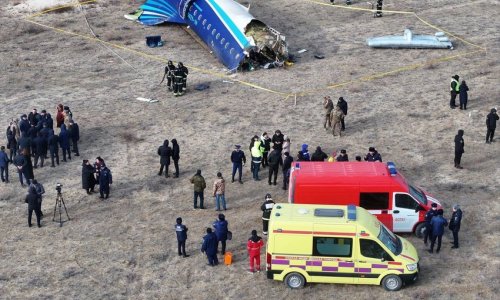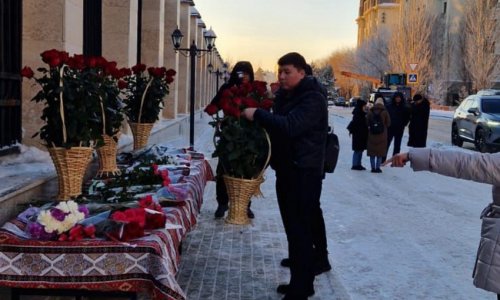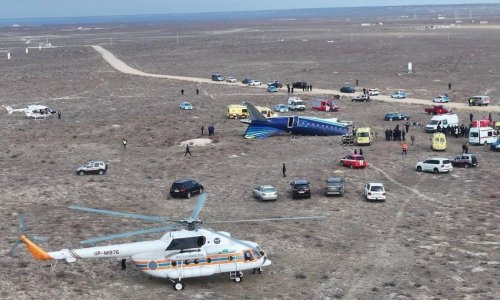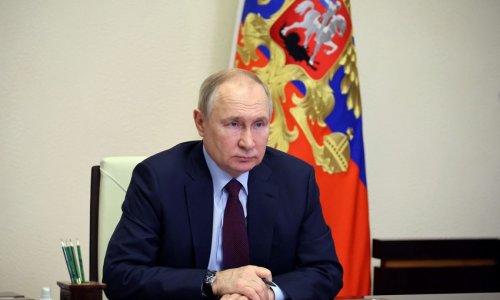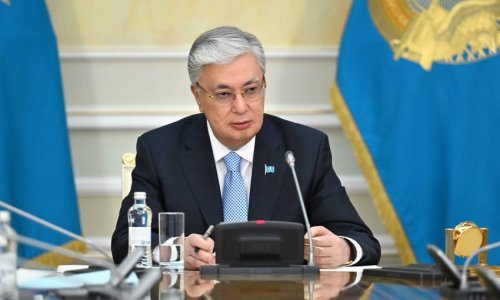Follow us !
Nato boosts Baltic force, but local leaders want more - PHOTO
World
17:29 | 03.04.2014
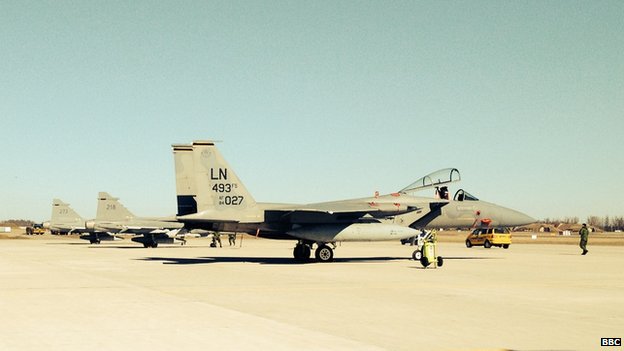
Nato boosts Baltic force, but local leaders want more - PHOTO
There has been an American invasion of a former Soviet Airbase in the middle of Lithuania. They are, of course, invited guests - more than 100 US Air Force personnel, along with F-15 fighter jets and a Nato early-warning radar plane with its characteristic mushroom-shaped dish on top.These days, residents of the nearby town of Siauliai are more worried about uninvited guests from the east. And in fellow former Soviet state Ukraine, they have just seen their worst fears confirmed.Lithuania's Defence Minister Juozas Olekas does not describe it as a new Cold War. To him, he says, "it feels hot and very near", adding that Nato must to do more to stop what he calls "this aggression".Warplanes from the Russian Federation already fly close to nervous Baltic states. Their arrival is often unannounced and invisible to civil air traffic controllers.The Russian air force rarely submits flight plans or "squawks" communication signals while in the air. Sometimes it can seem as if they were carrying out a combat mission, though they're not technically breaking any rules.The warplanes avoid Nato airspace, following a narrow corridor over the Baltic Sea. Sometimes they turn towards Kaliningrad - the small Russian enclave between Lithuania and Poland, now joined by Crimea as a Russian-controlled quirk of the map.At Nato's Combined Air Operations Centre, deep in the countryside of northern Germany, they pool the resources of all the alliance's military radar to track the Russian activity.The base in Uedem is surrounded by wire and patrolled by guards with dogs. We are taken past bunkers covered by grass, before being given a rare glimpse inside one of the operations rooms.More than a dozen staff in different Nato camouflage uniforms and speaking a variety of accents are closely monitoring computerised maps showing scores of white dots. Here they can track every single plane flying in area stretching from the Alps in the south right to the northern tip of Norway.Gp Capt Stephen Richards of the UK's RAF is the air operations commander at Uedem. He tells me that over the years they have seen a gradual increase in war plane activity, consistent with what he calls "Russian ambition" - and President Vladimir Putin's increased defence spending. Now they are spotted virtually every week.Asked if he is worried by it, he says he is not, but adds "we need to be aware".From Uedem they can scramble fighter jets right across northern Europe.Back in Lithuania, an alarm sounds at the F 15 fighters' temporary home - pilots aim to be in the air within fifteen minutes.They're here because the small Baltic states, Latvia, Lithuania and Estonia, lack sufficient aircraft to police their own skies. So Nato's wealthier members take turns doing it for them.Normally they send four jets, but this time the US has sent ten F-15s. And suddenly there have been offers of more planes from half a dozen countries, including the UK, Denmark and France.Lt Col Lendy Reneger, US Air Force commander at the base in Lithuania, says the alliance's response to recent events has been "swift and strong".He says there's no more powerful message than showing "air superiority", though he carefully avoids naming Russia.He also declines to answer when I ask him if he or his pilots have spotted any Russian warplanes up close during their patrols. "I can't comment on the specifics of the operation," he says.A Nato Airborne Warning and Control System (AWACS) aircraft takes off during the Lithuanian - NATO air force exercise at the Siauliai airbaseNato is keen to stress that, in a nervous post-9/11 world, air policing is as much about investigating suspicious civilian aircraft as it is about facing off against old enemies. And, up in the air, the F-15s show us how they would deal with an unidentified plane.From a Lithuanian transport plane we watch as two of the US fighters pull up alongside and signal for us to land.For this exercise they have been joined by two Swedish Grippen fighters. The Swedish Air Force was embarrassed last year when they failed to scramble when a Russian bomber flew close to their coast.It was Easter and they were on leave. They do not want to be caught napping again.The Baltic states, on the other hand, have always been quick to identify threats from their eastern neighbour.Maj Gen Edvardas Mazeikis, the head of the Lithuanian air force, says "of course we feel threatened," before adding that it is not yet "the enemy at our gate".He thinks Nato's response to the crisis has been correct, but his defence minister wants more.Juozas Olekas says Nato should have a permanent presence, including ground troops, in the Baltic states.But therein lies a dilemma for the alliance's leaders. Would more reassurance for its smallest members be a catalyst for another Cold War?(BBC)ANN.Az

